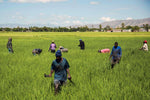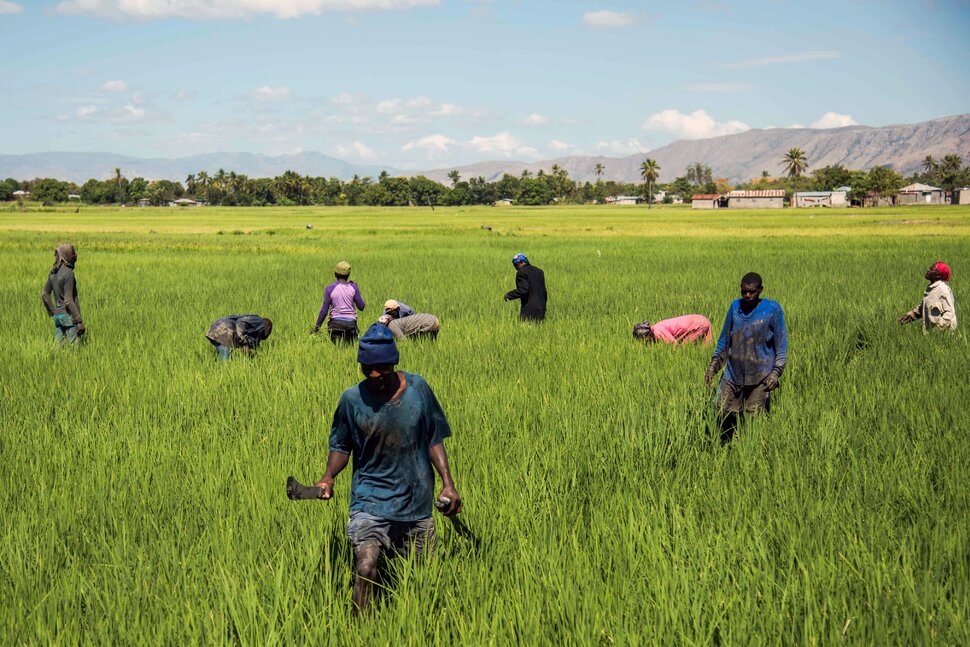
How the Diaspora Can Invest in Haitian Farmers
, by Seo Guy , 4 min reading time

, by Seo Guy , 4 min reading time
Diaspora investing in Haiti farming is not charity; it is strategy. Agriculture feeds families, stabilizes neighborhoods, and anchors local markets. When farmers thrive, schools fill, clinics stay supplied, and migration becomes a choice rather than a necessity. For Haitians abroad, putting capital and know-how into the soil answers two questions at once: how to honor home and how to build durable livelihoods.
The farming struggles in Haiti today are well known to growers but too often invisible to consumers. Seeds and fertilizer are expensive or inconsistent. Irrigation is fragile where canals are clogged or pumps are scarce. Roads turn to obstacles during rainy seasons, raising transport costs and spoiling produce. Storage and processing capacity are limited, so farmers must sell quickly at lower prices. Credit is either unavailable or predatory, trapping smallholders in cycles of risk. Naming these hurdles clearly helps the diaspora invest in solutions rather than slogans.
Practical diaspora opportunities to help start with three C’s. First is capital: low-interest loans and revolving funds that align with planting and harvest cycles, not city paydays. Second is contracts: guaranteed purchase agreements that protect farmers from price whiplash and give them leverage with input suppliers. Third is capacity: training on soil health, post-harvest handling, co-op governance, and digital bookkeeping so farmers can track costs and negotiate fairly. Small, well-targeted investments here can outperform one-off donations by creating repeatable success.
A tangible example of diaspora investing in Haiti farming is found in how Creole Sizzle sources Djondjon. Djondjon—the black mushroom that gives rice its signature aroma—depends on careful foraging, drying, and quality control. By partnering with co-ops and trusted aggregators, Creole Sizzle commits to fair pricing, moisture and purity standards, and scheduled pickups that reduce waste. Documentation travels with each lot so buyers abroad know where their mushrooms came from and how their purchase supports rural households. This approach to how Creole Sizzle sources Djondjon shows what good sourcing can do: stabilize income, reward quality, and turn heritage ingredients into reliable export stories.
Farmer co-ops translate individual effort into collective strength. They negotiate bulk input purchases, share drying and storage infrastructure, and set quality standards that buyers respect. To avoid common pitfalls, co-ops need clear bylaws, transparent accounting, and fair member benefits. Diaspora sponsors can fund independent audits, leadership workshops, and software for traceability. When co-ops function, they reduce the farming struggles in Haiti today and make diaspora opportunities to help measurable.
Another lever for diaspora investing in Haiti farming is value addition. Drying fruit, milling grains, grading beans, and packaging spices locally keeps more money in farming communities. For djondjon, better drying racks and sealed bags preserve aroma; for cocoa and coffee, fermentation and consistent roast profiles unlock premium pricing. Small grants for equipment plus training on food safety standards can transform margins. This is where buyers like Creole Sizzle, with lessons from how Creole Sizzle sources Djondjon, can mentor partners toward export readiness.
Weather shocks and transport bottlenecks magnify risk. Diaspora-backed micro-insurance, warehouse receipts, and shared transport pools can cushion losses and smooth cash flow. Simple logistics wins—scheduled truck routes, palletizing, and route-planning apps—save time and reduce spoilage. Finance partners can align repayment schedules with harvest, a crucial fix for the farming struggles in Haiti today where cash comes seasonally, not monthly.
When diaspora opportunities to help become action, success looks like this: farmers see predictable demand and fair prices; co-ops keep clean books and upgrade equipment; exporters meet specs without last-minute scrambles; and consumers abroad taste the difference. In that chain, diaspora investing in Haiti farming has done its job—turning goodwill into livelihoods and proving, through how Creole Sizzle sources Djondjon, that transparency and respect can scale.
You do not need a foundation to begin. Sponsor a co-op training, pre-buy a season’s djondjon, fund a drying rack, or cover audit costs that open a new buyer relationship. Visit, verify, and celebrate wins publicly so others join. The farming struggles in Haiti today are real, but so are the tools to solve them. With patient capital and partnership, the diaspora can help the land give back—again and again.


$37.25 - $54.35


$16.13 - $24.40


$32.28 - $77.35


